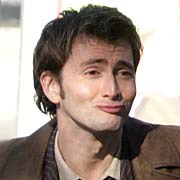 In an attempt to feature some more 'contemporary' music on this site I recently picked up the new, and ninth, album from my old teenage thrash favourites - Slayer - with the heartwarming title 'Christ Illusion'. The uncompromising attitude and commitment to loud, fast, aggressive and brutal remains unchanged as ever. A massive strength, but equally something of an Achilles heel. In the olden days Slayer wrote very fast and brutal songs on such cheery topics as serial killers, war, lobotomies, Nazi war criminals, Necrophilia, and Satan. Nowadays Slayer still write songs about serial killers, war, lobotomies, Nazi war criminals et al - they just play them a bit slower, and since the underrated Diablous In Musica with a faintly disturbing nu-metal inference. Significantly, since 2001's God Hates Us All it would something of an understatement to say that they, or moreover guitarist Kerry King, have developed a distinctly subtle dislike for Religion and in particular Christianity. With the new offering's title Christ Illusion there are few surprises about what your going to get. Except, perhaps, for how disappointing the overall effort is.
In an attempt to feature some more 'contemporary' music on this site I recently picked up the new, and ninth, album from my old teenage thrash favourites - Slayer - with the heartwarming title 'Christ Illusion'. The uncompromising attitude and commitment to loud, fast, aggressive and brutal remains unchanged as ever. A massive strength, but equally something of an Achilles heel. In the olden days Slayer wrote very fast and brutal songs on such cheery topics as serial killers, war, lobotomies, Nazi war criminals, Necrophilia, and Satan. Nowadays Slayer still write songs about serial killers, war, lobotomies, Nazi war criminals et al - they just play them a bit slower, and since the underrated Diablous In Musica with a faintly disturbing nu-metal inference. Significantly, since 2001's God Hates Us All it would something of an understatement to say that they, or moreover guitarist Kerry King, have developed a distinctly subtle dislike for Religion and in particular Christianity. With the new offering's title Christ Illusion there are few surprises about what your going to get. Except, perhaps, for how disappointing the overall effort is.Listening to 'Christ Illusion' a couple of times I was really struck by how Slayer have done this all faster, better and more imaginatively before in their albums up to the relatively underrated Divine Intervention. Since 'Intervention', Kerry King's rise to songwriting prominence, with its cheesy nu-metalish moments, seems to have turned Slayer into a self conscious soapbox for a fruity form of Theophobia which gets riper with each subsequent release. The song 'Catalyst' is a fine example of this as King justifies his nutty extreme standpoint whilst chucking a few 'Hail Satans' into the mix. Its the magical kind of song that sounds as if its specially written for some meathead American wrestler. For all I know it could be.
Perhaps, the others realising that the very best Slayer is long behind them, just simply let Kerry get on his soapbox. Jeff Hanneman, the most active songwriter on all the classic albums, definitely seems to be disinterested playing virtually the same guitar solo in every song since 'Diabolus'. Unfortunately, the main problem with King's songs and lyrics aside from their nutty and silly content is that they slow the music down as Tom Araya trys to sing or better still 'elucidate' them, at times William Shatner style as he does in the intro to 'Eyes of the Insane'. I would also like to think that somebody in Slayer has a sense of humour when a bleak song 'Jihad' from the perspective of Islamic terrorists wanting to blow themselves up ends with a fading and repeated "Hail Satan". The frequency of these "Hail Satans" inanely peppered amongst the album's lyrics though rather fatigueing, but nonetheless amusing, might indicate somebody in the band has a sense of humour.
Lyrics, if you can call them that, have never been a massive Slayer strongpoint. But by God, the lyrics in the unholy trinity of Slayer albums Reign in Blood, South of Heaven and Seasons in the Abyss had far more fantasy and imagination than the crazily self conscious, cod satanic ranting of Slayer/Kerry King circa 2006. This is not to say there isn't some success on the album. I do like the faster tracks such as 'Supremist', 'Skeleton Christ', 'Cult', 'Consfearacy' (can you guess what this song is about ?), and 'Flesh Storm' (?!). Unfortunately, the 'slower' songs 'Catatonic', 'Black Serenade', 'Eyes of the Insane' have all been done better, harder and faster before without the nu-metal inferences.
To conclude, this is not 'Reign in Blood' part two, more a mildly diluted mixture of 'South of Heaven' with elements of 'God Hates' and a big Lemon chunk of Kerry King's rage and indignation. Given some twenty years and 6 studio albums, the sequel some misguided Slayer fans still dream for ain't coming... Age doesn't seem to have diminished Slayer's anger, or volume, just the speed (I wouldn't blame this on returned metal drumming machine/legend Dave Lombardo) and potency. I can only guess the crap King and co pontificate about would become even more unintelligible and ludicrous spewing out of Araya's mouth the faster one played it. Yet, perhaps if they didn't take their blatherings so seriously to slow things down a notch at times, moved it up a gear and added a dash of imagination we'd have a minor thrash classic.


